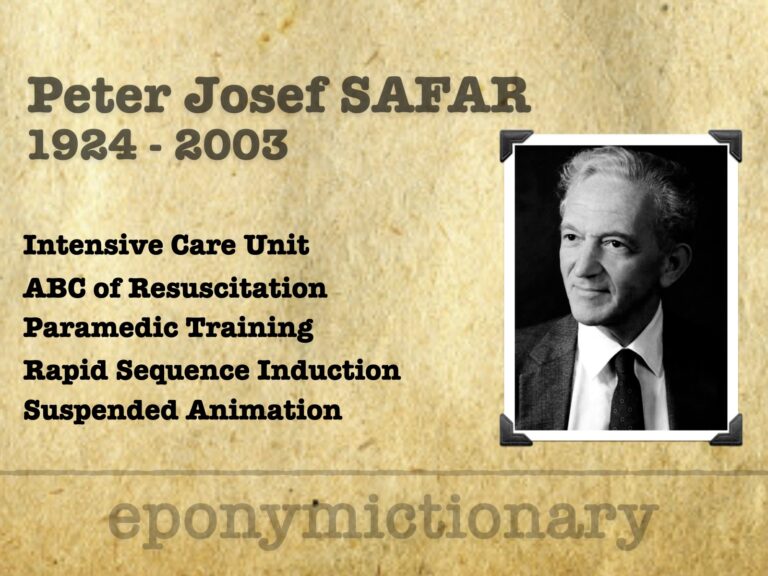
Peter Safar
Peter Safar (1924–2003), father of modern resuscitation, pioneered CPR, ICUs, paramedic training, and therapeutic hypothermia.

Peter Safar (1924–2003), father of modern resuscitation, pioneered CPR, ICUs, paramedic training, and therapeutic hypothermia.

Paediatric Rapid Sequence Intubation. RSI is used to secure the airway quickly with an endotracheal tube and to prevent chance of regurgitation and aspiration

Traditionally ketamine was contra-indicated for use in rapid sequence intubation of the head injured patient. This view has since been debunked. Recent evidence suggests that ketamine may actually be useful in this setting

Difficult Airway Algorithms. Difficult airway algorithms are useful for considering all the contingencies that may occur during intubation

Rapid sequence intubation (RSI) is an airway management technique that produces inducing immediate unresponsiveness (induction agent) and muscular relaxation (neuromuscular blocking agent) and is the fastest and most effective means of controlling the emergency airway

Traditionally there are four options for pretreatment for Rapid Sequence Intubation (RSI): atropine, lidocaine, fentanyl, and defasciculating dose of a non-depolarising neuromuscular blocker

This video is from the Greater Sydney Area HEMS blogpost on Rapid Sequence Intubation in Retrieval Medicine
the case. You are working in a district hospital and are called to the Special-Care Nursery to assist with an unwell newborn infant. She was born 2 hours ago at 39 + 4 weeks gestation, to a primip mother who…